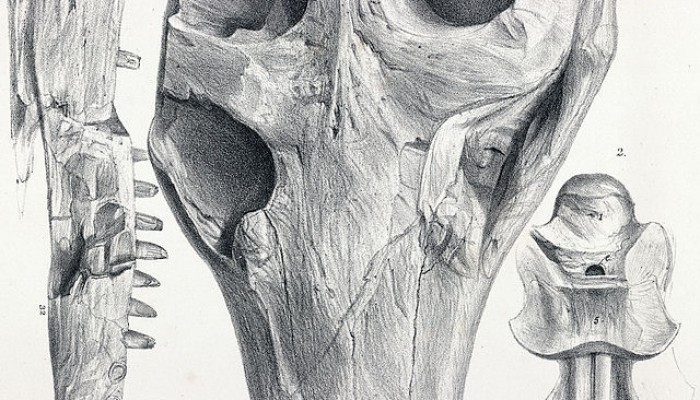Yes, Nessie had to be in the title. Am I sorry? A little. But not enough to not use it.
Colleagues from the University of Edinburgh and myself have described the first Scottish crocodile fossil! It’s from the Isle of Skye, from a time known as the Middle Jurassic, and dates back around 160 million years ago. Based on a partial bit of a jawbone (the dentary), it’s hardly the most spectacular fossil we’ve ever found, but it tells quite a neat story.
Based on the features we could identify of the jawbone, we were able to identify the specimen as belonging to Theriosuchus. This genus has quite a complicated history, and currently 5 species are assigned to it that span some 100 million years! That’s pretty long lived for a single genus. Theriosuchus belongs to a group known as Atoposauridae, which based on our current understanding went extinct along with the non-avian dinosaurs at the end of the Cretaceous period.

